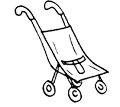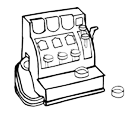5 conseils pour lutter contre la chute de cheveux post-grossesse
Beaucoup de femmes la redoutent. Et on les comprend ! Après une grossesse et un accouchement, sérieusement ... nos corps méritent un peu de répit non ? Heureusement, si elle ne peut pas être évitée à tous les coups, la perte de cheveux post-grossesse peut être fortement limitée notamment grâce aux trucs et astuces des Milk Away MUMs. #wearewomum #teamwomum
Avant toute chose : on ne panique pas ! Perdre ses cheveux environ 3 mois après l'accouchement ou à l'arrêt de l'allaitement est tout à fait normal. Et dans la toute grande majorité des cas, cette alopécie est réversible. Donc, même si on accueille pas la nouvelle les bras grands ouverts et avec une danse de la joie, on se rassure en se disant que ce n'est qu'un mauvais moment à passer. Franchement, on a vu pire non ? #accouchement #lesfemmessontdessuperhéroïnes On vous invite d'ailleurs à lire notre article sur les 10 bons plans pour se faciliter le retour à la maison après avoir accoucher. La chute de cheveux éphémère face à une privation de sommeil proche de la torture pendant les trois prochaines années, finalement c'est pas grand chose...
D'ailleurs, la chute de cheveux n'est pas un phénomène si rare que ça dans la vie d'une femme et pas toujours spécialement liée à la grossesse. En effet, au moins une femme sur trois souffrira d’une perte de cheveux à un moment donné de sa vie. Les causes sont multiples et variées pour notre plus grand bonheur : un stress intense voire un choc post-traumatique dans certains cas, une permanente ou un défrisage trop agressif, un changement de saison mal supporté en raison d'une baisse d'immunité, une allergie carabinée, une mauvaise alimentation globale, etc. Et comme souvent, une mauvaise hygiène de vie globale a des impacts à différents niveaux, y compris sur la santé des cheveux.
Il y a chute de cheveux et chute de cheveux
Petite mise au point tout de même avant de provoquer une hausse drastique des demandes de consultation chez les dermatologues : tout le monde perd quotidiennement des cheveux (même sans s'en rendre compte) puisque ces fibres ont par nature une durée de vie limitée allant de deux à cinq ans. Chaque jour, on perd en moyenne une petite centaine de cheveux : en dormant, en se coiffant, en s'habillant, en se lavant, en vivant tout simplement. Leur cycle de vie se compose de trois phases qui s'enchainent naturellement et garantissent une densité relativement stable de la masse capillaire.
Et il faut préciser qu'à ce niveau-là, on ne nait malheureusement pas tou.te.s éga.ux.les. Certain.e.s ont les cheveux épais, d'autres fins, certain.e.s profitent d'une croissance rapide d'autres non. C'est la vie ! On ne peut que conseiller à celles et ceux qui ont des cheveux fins et peu de masse d'en prendre particulièrement soin en privilégiant les shampoings et soins doux, en évitant de les agresser avec trop de colorations, décolorations ou autres outils de coiffage chauffants.
Grossesse et chute de cheveux : mais POURQUOI ?
Pourquoi, pourquoi moi, pourquoi maintenant ? La question est toujours sensiblement la même, seule l'intonation de désespoir varie (toujours selon vos heures de sommeil au compteur ... tout dépend toujours de ce curseur !).
Après un accouchement, on perd ses cheveux tout simplement parce qu'on subit une chute hormonale vertigineuse. Les oestrogènes qui nous donnaient le teint éclatant et le poil brillant estiment que le job est fait, bien fait et terminé et ils se font la malle. Les lâches franchement, le plus gros du job de parent reste à faire et eux, ils fuient devant la difficulté. Pfffff ! Vous prenez les déserteurs d'oestrogènes et vous y ajouter une bonne dose de stress et de fatigue et bim, bam, boum, vos cheveux vous disent zut ! (Oui zut, ou mince, ou même mercredi. Autant vous habituez tout de suite à ne plus prononcer de gros mots parce que les enfants répètent tout et tout particulièrement au mauvais moment devant la mauvaise personne : le pédiatre, l'institutrice, la belle-mère. Vous faisant ainsi passer pour un parent à peine fréquentable.)
La chute de cheveux post-partum est normale et très fréquente. On ne s'inquiète donc pas, on tente tout simplement de limiter les dégâts. On consulte un spécialiste si elle perdure plus de 5 à 6 mois et qu'elle s'accentue avec le temps.
5 solutions à la chute de cheveux post grossesse
Il n'y en a pas mille et aucune n'est miraculeuse mais toutes ensembles, elles permettent de limiter la quantité et la durée de la perte de cheveux post-grossesse.
- On privilégie les soins capillaires doux. Vos cheveux ne sont pas en grande forme, ce n'est donc pas le moment de les agresser et de les fragiliser d'avantage. Optez pour des shampoings et soins nourrissants, de préférence avec un maximum d'ingrédients naturels. Côté coiffage, limitez autant que possible les fers brûlants et évitez les décolorations qui assèchent les cheveux et les rendent particulièrement cassants. Il est aussi important d'utiliser correctement les soins : un après-shampoing et un masque ne s'appliquent pas sur le cuir chevelu (sans rare mention contraire) au risque de le graisser et d'alourdir les cheveux. De plus, chaque soin doit être abondamment rincé à l'eau claire. Le sèche-cheveux, quant à lui, s'utilise à 15-20 cm des racines pour éviter les coups de chaud et les irritations. Pensez également à vous offrir régulièrement des massages du crâne. Positionnez vos mains en pince et réalisez de petits mouvements circulaires avec la pulpe de vos doigts. Exercez une pression modérée qui doit restée agréable. Cette stimulation booste la circulation sanguine sous la peau et favorise la pousse des cheveux.
- On prête attention à son alimentation et son hygiène de vie. C'est vraiment un point important. Après un accouchement, vous accumulez beaucoup de fatigue, vous vivez des périodes de stress et de bouleversements hormonaux. Votre corps a besoin d'énergie, de vitamines, de bons aliments pour prendre des forces et fonctionner normalement. Mangez sainement aide grandement à retrouver un équilibre et à faire rentrer les choses dans l'ordre. L'alimentation étant aussi ultra important pour les mamans qui allaitent.
- On essaie de dormir en suffisance. On sait. On imagine bien qu'en lisant cette phrase vous êtes pris.e d'un rire nerveux ... C'est clairement plus facile à dire qu'à faire mais il est évident qu'en état d'épuisement, le corps passe en mode survie et tout est chamboulé. Un sommeil de qualité en suffisance aide grandement à retrouver des cheveux forts et brillants (et un teint d'apparence humaine accessoirement.)
- On suit une cure de vitamines. Oui, MAIS ! On ne joue pas aux apprenties sorcières et surtout pas si on allaite. Les offres sur le marché sont nombreuses (gélules à base de vitamines B, d’acides aminés, de zinc, de fer, etc.) mais toutes ne sont pas compatibles avec l'allaitement. On ne prend aucun risque et on demande conseil au pharmacien, à sa sage-femme, à un dermatologue (qui pourra prescrire du Minoxidil 5% selon votre phototype) ou à son gynécologue. Certain.e.s gynécologues conseillent d'ailleurs aux jeunes mamans de continuer les vitamines de grossesse les deux ou trois premiers mois suivant l'accouchement. Pour celles qui ont la chance de n'avoir qu'une faible chute de cheveux, les vitamines sont une réelle solution qui donne des résultats rapides et très satisfaisants. "Les cures de vitamines ont super bien fonctionné sur moi. Je dois avouer que je partais avec un bon capital capillaire de base car j'ai toujours eu beaucoup de cheveux assez résistants malgré ma passion pour les colorations depuis mes 14 ans. Ma chute de cheveux a commencé environ 3 mois après avoir accouché ce qui a coïncidé avec l'arrêt de mon allaitement (période pendant laquelle sur les conseils de ma gynécologue j'avais continué de prendre mes vitamines de grossesse). J'ai remarqué en quelques jours à peine après le sevrage que je perdais beaucoup plus de cheveux que d'habitude. J'ai donc demandé conseil à ma gynécologue et j'ai entamé une cure de vitamines post-accouchement. Rapidement, la quantité de cheveux perdus a diminué et trois mois plus tard, elle avait cessé et j'avais retrouvé ma masse d'avant grossesse. J'étais joie ! " Marie-Noëlle, Milk Away MUM.
- On envisage de changer de coupe. Pourquoi s'infliger la vue quotidienne de vos longs cheveux qui jonchent le tub de votre douche ? C'est aimer se faire souffrir. Tirez avantage de la situation et offrez vous un petit passage chez le coiffeur (qui peut également s'avérer nécessaire pour maîtriser les petits cheveux fous qui feront leur apparition en bordure du visage une fois que la repousse sera enclenchée). C'est le moment de vous accorder un peu de me-time, de sortir de chez vous, de vous faire chouchouter et de donner un coup de frais à votre look. Vous ne pouvez que vous sentir mieux après.
Et si vous en avez marre, qu'aujourd'hui rien ne va, que vous voulez retrouver votre crinière d'antan, là, maintenant, tout de suite : ouvrez les vannes et pleurez un bon coup (ou gueulez. Y'a deux écoles et elles sont tout aussi efficaces l'une que l'autre). Ça aussi, ça fait un bien fou et ça libère du stress. Ne vous mettez pas trop la pression, vous êtes super et belle et bientôt, vous vous sentirez mieux dans vos baskets. Et bébé lui, clairement il s'en moque de l'état de vos cheveux. Avec ou sans vous êtes sa super #wondermum.
En plus de ces conseils, n'hésitez pas à consulter notre eshop et les tenues d'allaitement qui vous permettent d'être bien dans vos vêtements tout en allaitant discrètement.

#milkawayapparel #inmumwetrust #wearewomum #teamwomum #hair #haircare #hairlove #hairgrowth #hairjourney #postpartumhairloss





